 When it comes to homeowners’ associations (HOAs), effective management is crucial for maintaining property values and fostering a harmonious community environment. One of the cornerstones of successful HOA vendor management is effective communication and interactions with service providers performing tasks such as landscaping and maintenance.
When it comes to homeowners’ associations (HOAs), effective management is crucial for maintaining property values and fostering a harmonious community environment. One of the cornerstones of successful HOA vendor management is effective communication and interactions with service providers performing tasks such as landscaping and maintenance.
However, for these partnerships to function smoothly, managers need a well-defined and structured HOA policy. Let’s explore how HOA policies play a crucial role in empowering boards to effectively manage service providers and precisely assess their performance.
Defining HOA Policies
Policies act as the guiding principles governing interactions within an HOA, setting expectations, procedures, and standards. An HOA policy encompasses various crucial areas, including vendor management, financial practices, architectural guidelines, and community rules. Crafting comprehensive policies requires careful consideration of the association’s unique needs and objectives while ensuring alignment with laws and regulations. Importantly, these policies should reflect the collective interest of the association as a whole by prioritizing the well-being of the community over individual preferences or agendas.
How HOA Policies Strengthen Vendor Relationships
Streamlining HOA Vendor Management
Clear and well-defined HOA policies establish criteria for selecting vendors, ensuring that only reputable and qualified providers are utilized. These criteria may include factors such as experience, licensure, insurance coverage, and adherence to industry standards. By outlining the vendor selection process and criteria upfront, HOA boards can streamline the procurement process, minimize the risk of engaging unreliable or unqualified vendors, and ultimately safeguard the interests of the community.
Additionally, contracts and agreements with vendors should be guided by HOA policies, clearly outlining service expectations, payment terms, performance metrics, dispute resolution mechanisms, and termination clauses. This not only minimizes ambiguity but also provides a solid framework for holding vendors accountable for meeting their obligations.
Ensuring Vendor Compliance and Accountability
HOA policies play a crucial role in establishing and enforcing standards of conduct and performance for service providers. These standards may include adherence to legal requirements, industry best practices, safety regulations, environmental guidelines, ethical principles, and other compliance considerations.
Regular audits, inspections, and performance evaluations, as guided by an HOA policy, enable boards to monitor vendor compliance. These help identify any deviations or deficiencies, in order to take appropriate corrective actions. By promoting transparency, accountability, and consistency in vendor management practices, these policies help to mitigate risks, minimize disputes, and maintain the overall integrity of a HOA’s operations.
Facilitating Effective Communication with Your Vendors
Effective communication is essential for creating and maintaining productive relationships between HOA boards and service providers. Policies can play a vital role in establishing clear communication protocols and expectations for all parties involved. This may include guidelines for submitting proposals, requesting approvals, reporting issues or concerns, providing updates, and soliciting feedback.
By ensuring open, transparent, and timely communication, HOA policies help to prevent misunderstandings, facilitate effective collaboration, and address any issues or conflicts promptly. Regular meetings, workshops, and training sessions can also be organized to reinforce communication best practices and promote a culture of collaboration and mutual respect among stakeholders.
Vendor Performance Measurement and Improvement
Policies also provide the framework for establishing performance metrics, benchmarks, and evaluation criteria to assess the effectiveness and efficiency of service providers. These metrics may include factors such as quality of work, timeliness, responsiveness, customer satisfaction, compliance with contractual obligations, and adherence to budgetary constraints.
Regular performance assessments enable HOA boards to track vendor performance over time, identify areas for improvement or optimization, and make informed decisions regarding contracts. By promoting continuous improvement and accountability, these policies help to optimize the value delivered by service providers and improve the overall quality of service for the community.
Enhancing Community Satisfaction
Ultimately, the primary goal of effective HOA vendor management policies is to optimize community satisfaction and quality of life for residents. Well-managed vendor relationships, supported by robust policies, contribute to the overall attractiveness, safety, and functionality of the community.
Timely and reliable services, delivered in accordance with established standards and expectations, help to preserve property values, enhance curb appeal, and promote resident satisfaction. Additionally, by establishing a positive reputation for the HOA and instilling confidence in its management practices, these policies can contribute to increased resident engagement and community pride.
Policies are the Framework of a Successful HOA
Well-defined HOA vendor management policies are the backbone of effective governance and operation of homeowners’ associations. By establishing clear expectations, streamlining processes, ensuring compliance, fostering communication, measuring performance, and prioritizing resident satisfaction, these policies empower HOA boards to effectively manage vendor relationships and uphold the standards of their communities. As guardians of community interests, HOA boards must recognize the critical role of policies in promoting transparency, accountability, and excellence in service delivery. By investing time and resources in developing and implementing comprehensive vendor management policies, HOAs can position themselves for long-term success.
If you’re looking to enhance the management of your HOA and optimize vendor relationships, consider partnering with a trusted industry leader like the Helsing Group. With over 30 years of experience in HOA management, our team of experts can provide tailored solutions to meet your specific needs and objectives. Learn more about our comprehensive range of services by scheduling a consultation. Together, we can help take your HOA to the next level and ensure the continued success and prosperity of your community.
 Want more help developing policies that ensure successful vendor relationships?
Want more help developing policies that ensure successful vendor relationships?
Get our list that outlines key categories and topics for policies you should consider implementing to ensure effective and successful vendor relationships: POLICIES FOR HOA VENDOR MANAGEMENT: BEST PRACTICES CHECKLIST



